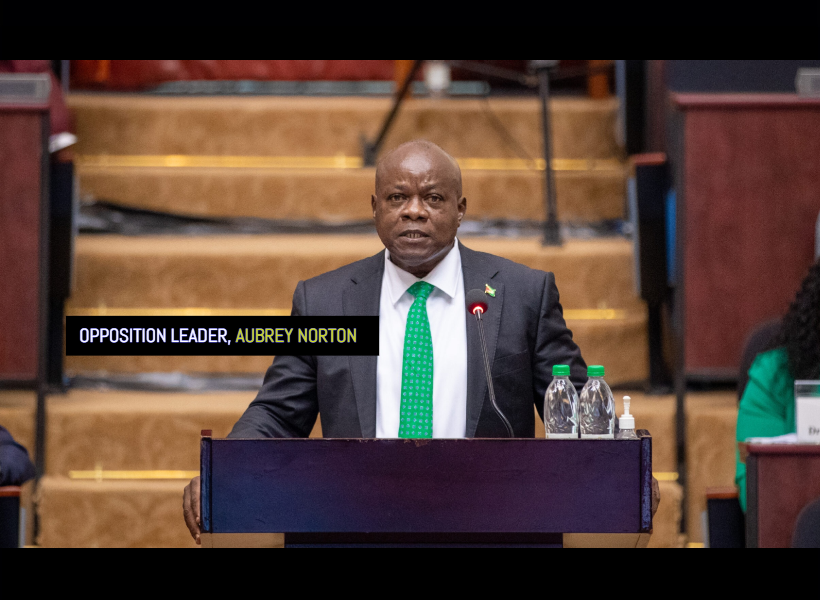Opposition Leader, Aubrey Norton has raised concerns about who qualifies as a Guyanese citizen when it comes to government grants. He pointed out that simply identifying someone as a Guyanese citizen isn’t enough. He emphasised that there needs to be clarity about whether that person is a resident or not.
Norton’s call for clarity comes days after the Irfaan Ali-led regime revised its $200,000 per household grant to now give $100,000 to each Guyanese 18 years and older. That, and a valid form of identification, are the only two parameters cited by the president for eligibility.
Concerns about overseas-based Guyanese journeying to Guyana to benefit are now beginning to fill newspaper columns and have garnered the attention of many resident Guyanese. The government’s revision of the initial payout was prompted by possible logistical and verification challenges, primarily surrounding the question of what constitutes a family, and the verification of same.
The government also moved to amend the plan after an influx of activities geared at exploiting loopholes were observed. For example, households were being split with persons occupying various sections of the same property with “tenancy agreements” being drafted. There was also an increase in application for utility services to establish those separate living quarters as legitimate, separate households.
The revision of $100,000 per each Guyanese adult was also seen as more equitable measure, the President said.
The opposition leader, however, still believes there was a lack of proper planning. During a press conference on Friday, he said “You have to decide what, who constitutes a Guyanese citizen. And then you also have to decide, is it a Guyanese citizen resident? Because there are many Guyanese who overseas. And if you say Guyanese citizen, somebody could live in for 45 years in the United States, never came home and come home and collect”.
Norton referenced former Minister Jordan, who suggested that individuals who spend at least 183 days a year in Guyana should be considered residents. Norton opined that this is a reasonable benchmark, as it ensures that beneficiaries are present in the country for at least half of the year. Norton criticized the current administration for not conducting this type of analysis, leaving the criteria vague.
Norton also emphasized the need for concept papers in government planning, saying that during his time in public service, every idea was accompanied by a concept paper outlining objectives, strengths, and weaknesses. This approach, he said, helps in forming a clear strategy and in establishing the modalities for proper implementation.
Several US-based Guyanese who spoke to the Guyana Standard, scoffed at Norton’s concern. Many said that the money spent on airfare alone far exceeds the GYD$100,000. Those who live in neighbouring Suriname, closer to the Guyana border, may invest in travel by ferry to cash in on the initiative.
But for now, the government is mum on implementing non-resident restrictions.













